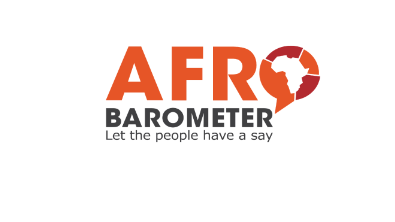While most Africans endorse elections as the best method for choosing their leaders, this preference has weakened over the past decade, a new Afrobarometer report reveals.
Based on national surveys in 39 African countries, the new analysis shows that most Africans endorse multiparty competition, feel free to vote as they choose, and assess their most recent election as largely free and fair.
But fewer than half think voting ensures representative, accountable governance, and public trust in national electoral-management bodies is weak in most countries.
Key findings
- Three-fourths(75%) of Africans support fair, open, and honest elections as the best way to choose their leaders, including 50% who “strongly agree” with this view (Figure 1).
- However, on average across 29 countries where this question was asked in both2011/2013 and 2021/2023, this support has dropped by 8 percentage points, including massive declines in Tunisia (-24 percentage points), Burkina Faso (-19 points), and Lesotho (-19 points) (Figure 2).
- SierraLeone is the only surveyed country that records significantly increased support for elections (+13 points).
- Nearly two-thirds (64%) of respondents support multiparty competition to ensure thatvoters have real choices in who governs them, while 34% think political parties foster division and confusion and their country doesn’t need many of them (Figure 3).
- Fewer than half (42%) of Africans believe that their country’s elections ensure thatmembers of Parliament (MPs) represent the views of A similar minority (45%) say their elections enable voters to remove leaders from office who fail to align with the desires of the people (Figure 4).
- Africans overwhelmingly say they feel “completely free” (65%) or “somewhat free”(20%) to vote for the candidate of their choice without feeling Only 14% indicate that they feel pressured or constrained.
- Onaverage, only four in 10 citizens (39%) say they trust their national electoral commission “somewhat” or “a lot,” while 57% express little or no trust (Figure 5).
- Onaverage across 27 countries where this question was asked consistently since 2011/2013, trust in the electoral commission has dropped by 10 percentage points, from 51% to 41%.
Afrobarometer surveys
Afrobarometer is a pan-African, non-partisan survey research network that provides reliable data on African experiences and evaluations of democracy, governance, and quality of life.
Nine survey rounds in up to 42 countries have been completed since 1999. Round 9 surveys (2021/2023) cover 39 countries.
Afrobarometer’s national partners conduct face-to-face interviews in the language of the respondent’s choice with samples of 1,200-2,400 adults that yield country-level results with margins of error of +/-3 to +/-2 percentage points at a 95% confidence level.

